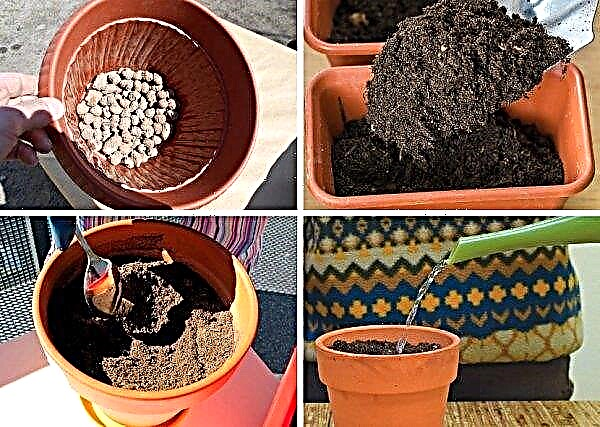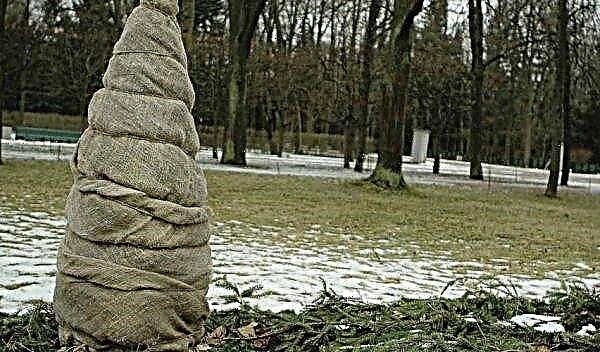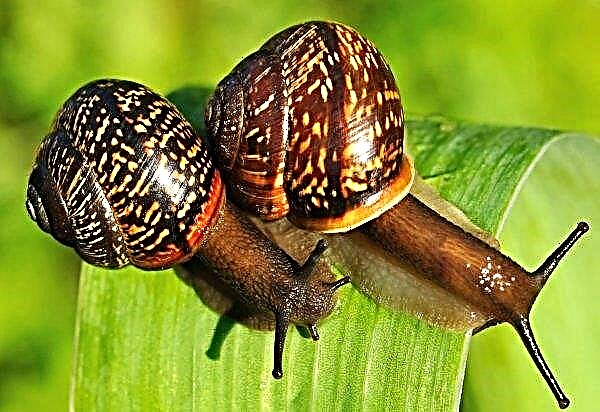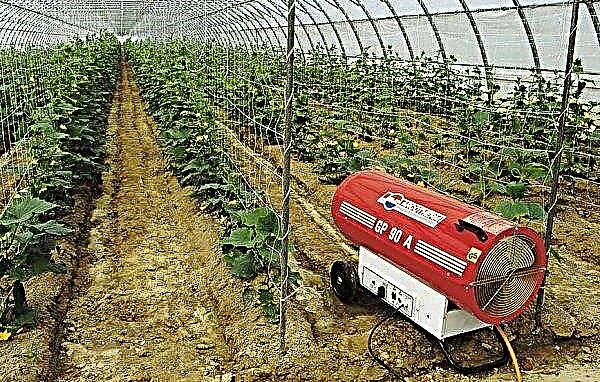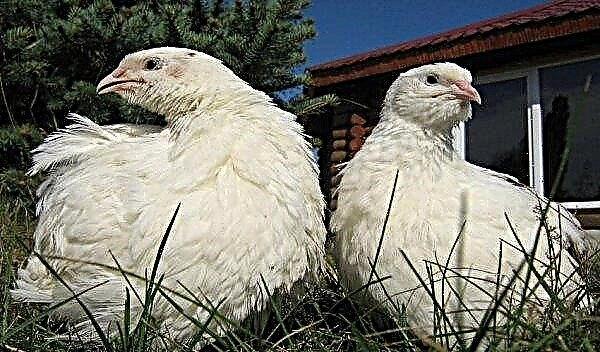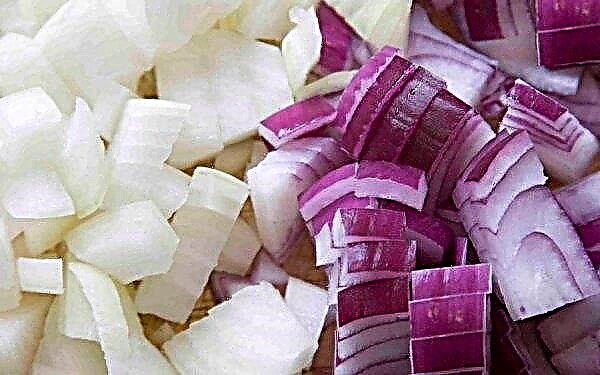Eggplant is a rather capricious plant to grow and care for, which, if the basic rules of agricultural technology are not followed, can upset the complete absence of fruits. Particularly often, problems arise with greenhouse growing vegetables. Why there are no ovaries in eggplant and how to deal with this problem, let's figure it out.
Features of growing eggplant in a greenhouse
Eggplant is a solanaceous plant, the fruits of which are large, round, pear-shaped or cylindrical berries of gray-green, dark purple or brown-yellow color. The culture is quite demanding in care, and if the basic rules of cultivation are not observed, it will be unpleasantly surprised by the absence of fruiting in the presence of excellent flowering.
To grow a fruiting plant in a greenhouse is not an easy task even for experienced gardeners.
For the successful cultivation of culture in a greenhouse, it is necessary to strictly observe several rules:
- Lack of temperature differences. Eggplants react very negatively to sudden changes in temperature, therefore, when growing seedlings, stable light and temperature indicators should be organized, otherwise the plant will respond by shedding flowers and ovaries.
- Quality soil. An important role in the good development of culture is played by the composition of the soil. Ideal options are light, nutritious, well-fertilized soils, for example, a mixture of humus and sod land or humus and peat.
- Heated soil. Planting seedlings should be in a well-heated soil, which will provide the plant's root system with favorable conditions for growth.
- Soil loosening. The soil for eggplant should be not only nutritious, but also enriched with oxygen, so it must be loosened regularly, going deeper into the soil a few centimeters.
- Watering and feeding. "Blue" require strict adherence to the watering scheme, otherwise the flowers will begin to fall off. The first irrigation should be carried out 5 days after planting in the ground, then once every seven days. Water the culture directly "under the bush", making sure that moisture does not fall on the foliage. During the season, eggplant needs to be fed 3-5 times, depending on the condition of the bushes. Fertilizers are first applied 2 weeks after planting. Mineral and organic products are used as top dressing.
Important! Eggplants simply "love" organic fertilizers, but you can’t get carried away too much, because they activate the growth of greenery and inhibit the development of fruits.
Why do not tie eggplant in a greenhouse
There are several reasons why eggplants bloom, but the fruits are not tied to them. Let's look at the most common.
Poor seed quality
Of course, it is impossible to grow a healthy, strong, fruiting plant from poor planting material. Experienced gardeners prefer to use grains from their own eggplant seed. When buying seed, it is recommended to use seeds of zoned or hybrid varieties that are specially adapted to the climatic conditions of certain regions.
Before checking the seeds for germination, you need to soak them for 30 minutes in a weak solution of salt. Good, high-quality seeds will go down to capacity, empty seeds will remain floating on the surface of the water.

Neighborhood violation
The right neighborhood is another important aspect of successful eggplant cultivation. The culture will perfectly "get along" with plants that need similar growing conditions, for example, bell peppers, radishes, cabbage, spinach.
It is recommended to avoid neighborhood with tomatoes, potatoes and other representatives of solanaceous because it is impossible to create optimal conditions for the successful cultivation of both types of plants.
Did you know? Eggplant, as many mistakenly assume, is not a vegetable, but from a botanical point of view, a berry. His closest relative is the thistle.
Unsuitable soil
Optimum for growing eggplants is nutritious, fertile, well-loosened soil with a neutral level of acidity. If the earth contains an excessive amount of nitrogen, then the flowers of the plant will fade and fall. In order to prevent this negative phenomenon, it is necessary to introduce potassium and phosphorus preparations into the soil or to feed it with wood ash. Fruit formation may not occur if the cultivation uses clay, highly acidic, podzolic soil. Before planting seedlings, it is necessary to carefully analyze the composition of the soil.

Irrigation
"Blue" prefer to grow in a well-moistened soil. The flowering and formation of ovaries will largely depend on abundant, high-quality moisturizing. It is very important to carry out irrigation measures, strictly adhering to a certain scheme, focusing on the state of the soil. Abundant watering leads to stagnation of water and, as a result, inhibition of the development of the root system. The lack of moisture in the soil leads to malnutrition of the culture and the further inadequate development of buds.
Lack of nutrition
One of the significant reasons that eggplants do not bear fruit is considered poor nutrition of the plant.
Throughout the season, it is necessary to carry out at least 4 top dressing:
- 14 days after transplanting seedlings. At the first application, it is better to use complex fertilizers;
- during flowering. At this time, it is advised to use preparations based on phosphorus and potassium;
- during the formation of fruits. For her, it is necessary to choose nitrogen-phosphorus agents;
- 3-4 weeks before harvest.
Important! Fertilizing, it is recommended to strictly adhere to the indicated dosage, otherwise instead of large, beautiful fruits, you can get a spreading, large bush.
How to fix the problem
To eliminate the problem of the absence of ovaries on the eggplant, compliance with some agricultural rules will help:
- seedlings should be planted in well-heated, fertilized soil;
- comply with the rules of "optimal neighborhood" or grow a plant separately from other crops;
- prevent sudden temperature jumps in the greenhouse, maintain the temperature at + 25 ° C, with the maximum possible deviations of + 5 ° C;
- apply fertilizers on time and ensure competent, regular watering;
- regularly carry out activities for loosening the soil.
Video: Eggplants are not tied
The reason for the formation of empty flowers may be the lack of pollination, if the eggplant variety is not self-pollinating. In such cases, it is necessary to carry out pollination independently by transferring pollen to a flower with a brush.
Did you know? Surprisingly, eggplant is one of the products that, when cooked, does not lose its nutritional qualities. In ancient times it was called the "rabies apple", because people believed that prolonged use of fruits could cause clouding of reason.
Preventative measures
To help the plant form high-quality and strong ovaries, experts recommend a series of preventive measures:
- thoroughly prepare the soil: fertilize, loosen, moisten;
- pick up only high-quality seed material;
- carry out regular ventilation of the greenhouse;
- carry out regular bush formation: remove dry, dead, weak and damaged stems, poor-quality ovaries, dry leaves;
- systematically shake pollen on flowers in order to increase the percentage of pollination.





